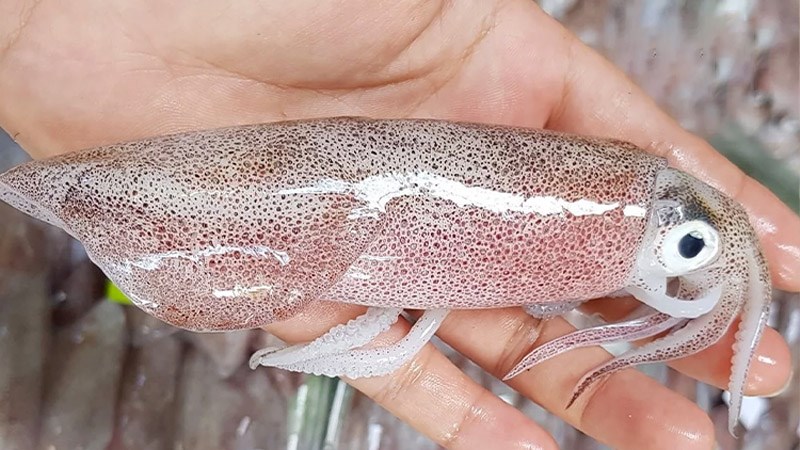Not only does fresh squid bring delicious dishes, but it also brings many health benefits. First of all, fresh squid is rich in heart-friendly omega-3 fatty acids. This fat has anti-inflammatory properties and plays an important role in reducing the risk of heart disease and other chronic diseases.
Fresh squid also contains complete protein with all 9 essential amino acids. They are beneficial for building tissues and muscles of the body.
Choline in fresh squid helps prevent spinal abnormalities in fetuses. Regular supplementation helps promote a healthy brain, improve concentration, and enhance memory.
In addition, in 100g, it also provides about 65% of the body’s daily selenium needs. This is an important trace mineral with antioxidant properties, improving immune function and protecting the body from many health issues related to heart health and cancer.

To know which one is fresh squid and which one is long-soaked squid, you can rely on the following 3 characteristics:
Based on the squid body
Fresh squid will have a shiny body, with most of the spots on the back being black and brown. The body of long-soaked squid will have a cloudy white color. The spots on the back will also turn pale pink, even red.
If the squid shows signs of peeling skin, it should not be bought. That squid has been soaked for a long time, the sweet taste and chewy texture of the squid have been lost.

Check the squid eyes
Fresh squid will have bright and clear eyes, while long-soaked squid will have cloudy and blurred eyes.
In addition, with fresh squid, you will observe the color of the squid’s eyes being translucent, not protruding, and able to clearly see the eyeballs without turning yellow or leaking fluid. If it is long-soaked squid, the eyes will become more cloudy, sometimes with leaking fluid.
You can touch the squid body with your hand, if it is fresh squid, the flesh will be firm and have high elasticity. When you press your hand, the squid will quickly return to its original state and leave no dents.

Check the squid tentacles
Fresh squid has very soft tentacles and the two tentacle chains are firmly attached to the squid’s tentacles, while long-soaked squid’s tentacles will be stiff. If the squid has been soaked for too long, the two tentacle chains of the squid will be broken.
By knowing how to distinguish fresh squid and long-soaked squid, you can be more confident in choosing food for your family, ensuring a delicious taste for your dish.



































